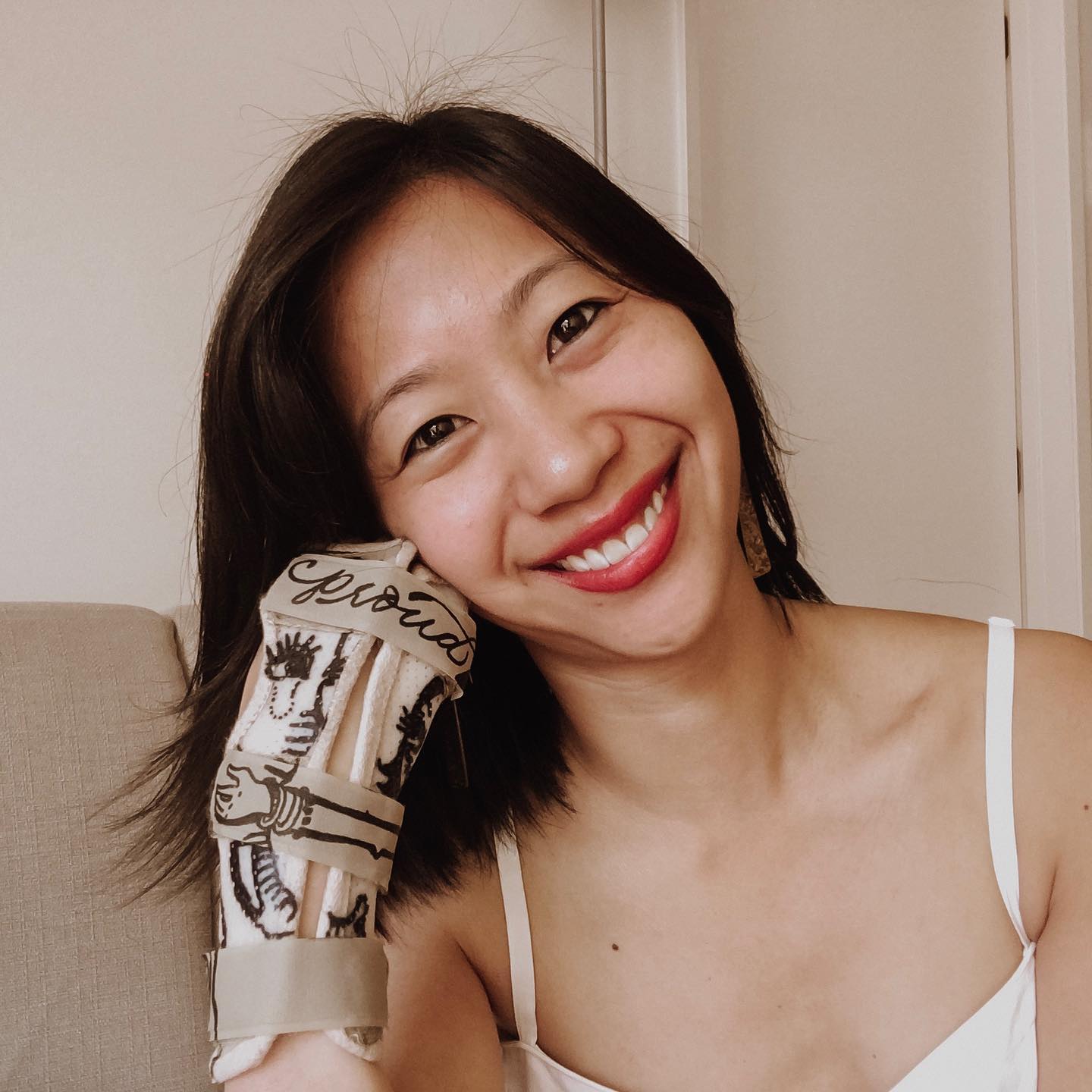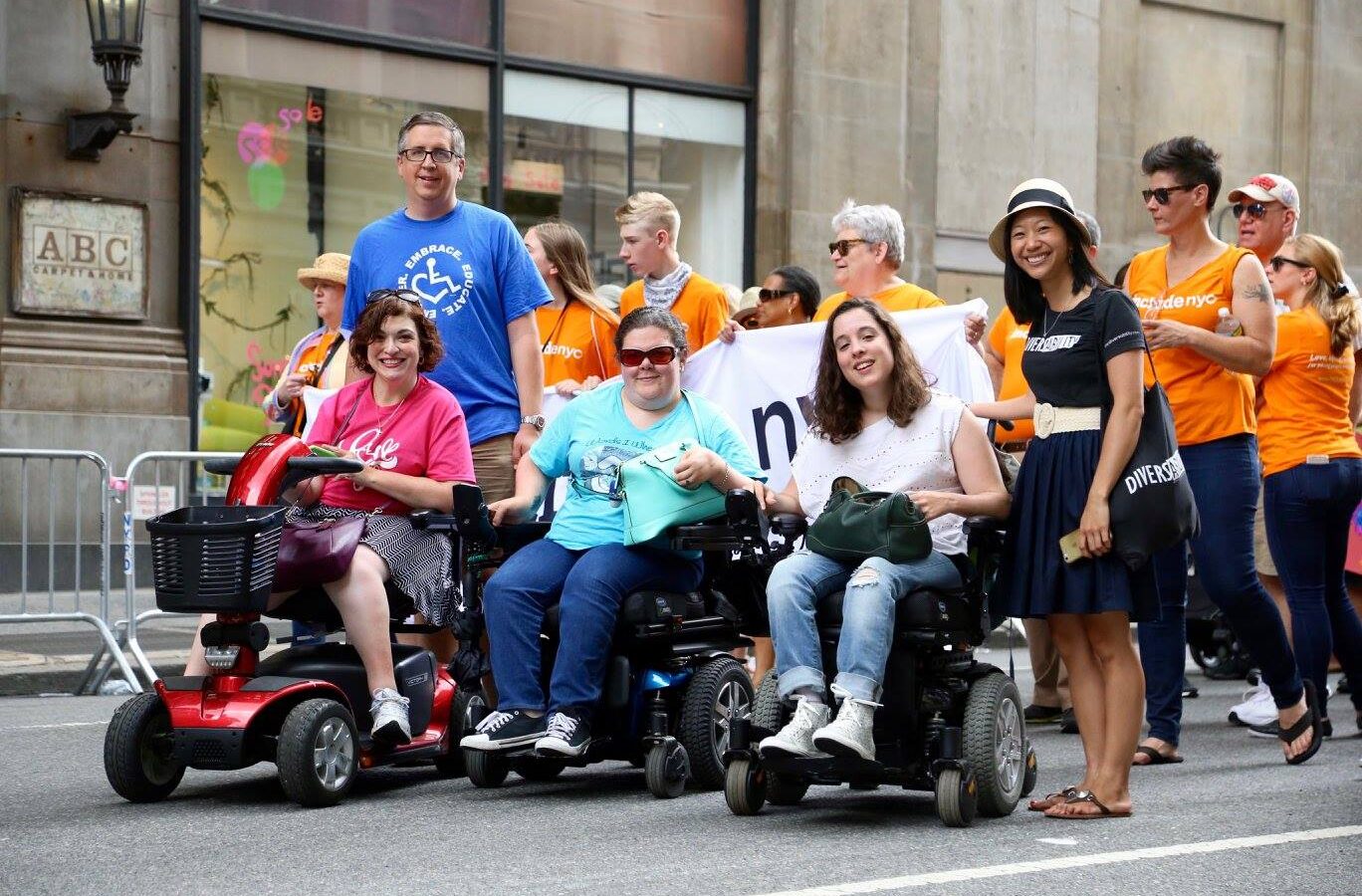“And the winner is… Diversability!”
It’s December 2020, and I just learned that my company, Diversability, is the recipient of $25,000 in funding from Meta. This was in addition to the $30,000 we had already received to invest in our growth as part of the Meta Community Accelerator Program.
I didn’t always feel like I was winning, though.
When I was nine years old, I was a passenger in a car accident that took the life of my dad and permanently paralyzed one of my arms.
For years afterward, I wore long sleeves to hide my paralyzed arm and told people my dad was away on a trip.
My mom modeled for me that I shouldn’t tell anyone about the car accident; It meant that something was “wrong” or “cursed” with the family for this to happen.
That wasn’t the only harmful message I internalized. Growing up, I believed something was wrong with my body due to the numerous appointments with physical therapists, acupuncturists, and surgeons to “fix” my arm.
For more than a decade afterward, I didn’t talk about any of it. Regardless of the fact that it had been out of my control, the topics of trauma, death, disability, and mental health needs were seen as shameful in the context of my Asian family.
It wasn’t until I found my communities, first in college and then as my career progressed, that I began to open up and face my lack of self-confidence and trauma head-on.
In college, after co-founding a club for Taiwanese American students with friends I had met during orientation, I felt confident enough my senior year to create another club for disabled students and our allies. The club was called Diversability, and my mentee from the Taiwanese American club created our logo (which we used through 2021). The club was focused on building a movement around disability pride, and we received $500 to get launched through a “Reimagine Georgetown Grant.”
It was during this time that I started to tell more people about the car accident, my dad’s death, and my disability. It made me realize that I wasn’t alone in feeling lonely and excluded, and how important sharing our stories is in humanizing our experiences.
I also learned that by being in a community, I could start to unlearn some of the negative messaging I’d internalized around my self-image.
Although I only ran the disability club a short time, it gave me the confidence to show up more as myself in the corporate world.
After graduation, I started my career in investment banking at Goldman Sachs. While I was there, I was actively involved in Goldman’s employee resource group for employees with disabilities. At my next employer, Bloomberg, I was part of the founding team behind the company’s disability employee resource group. Employee resource groups are focused on supporting employees who share a common identity that is typically underrepresented at work. Effective employee resource groups can foster inclusion, improve diversity, and promote external impact.
When I started at REVOLT, the Black-owned media company from Sean Diddy Combs, the company was too small for employee resource groups. I felt hungry to find a disability community again as a young professional with a disability living in New York City.
After connecting with Liz Taub and John Fazzolari on Twitter, and with encouragement from Gesche Haas and the community at Dreamers & Doers, I started planning Diversability’s first event in New York City to see if we had “product-market fit.”
In April 2015, we launched Diversability in NYC at a sold-out event attended by the Commissioner from New York City Mayor’s Office for People with Disabilities. We continued to host events regularly, and a few months later, the New York Public Library hired us to curate disabled speakers for a librarian training event. We quickly incorporated and realized we could build a business around promoting and valuing disability expertise.
I ran Diversability as a side hustle until 2017, when I was fired from a startup job and decided to make it my full-time gig.
And I haven’t looked back since.
Today, Diversability is a social enterprise providing community, educational content, and events around people with disabilities.
In addition to winning demo day at the Meta Community Accelerator, I’ve had the opportunity to share our work at Davos and rub shoulders with corporate CEOs, world leaders, and activists. We’ve connected with thousands of folks with and without disabilities passionate about disability inclusion. We’ve also directly supported the livelihoods of our disabled team and community members–over six figures worth and counting.
Here are a few things I’ve learned throughout my entrepreneurship journey:
- I know it sounds cliche, but as popularized by Simon Sinek, people care less about what you do and more about why you are doing it. Diversability’s earliest supporters were moved by my story and why I wanted to create a disability community.
- Find other communities that will cheer you on. My experience starting the Taiwanese American club is what made me believe that I could start a disability club. Today, I’m a member of many other communities that support women entrepreneurs and community leaders. And for me, Diversability is the place where I found my voice and became proud of my disability identity.
- It’s okay to start small. My first goal when I relaunched Diversability was to host one event. If no one showed up, at least I tried.
- I started Diversability on the side, never intending to transition into it full-time. While it was a side hustle, I was able to use that time to explore if there were ways that we could support ourselves financially.
- If you’re going through a hard time, know that it’s not the end of your journey. I think about 9-year-old Tiffany often in my work, and I wish she could see who she ends up becoming 25 years later and the millions of lives she’s been able to impact by sharing her story.


